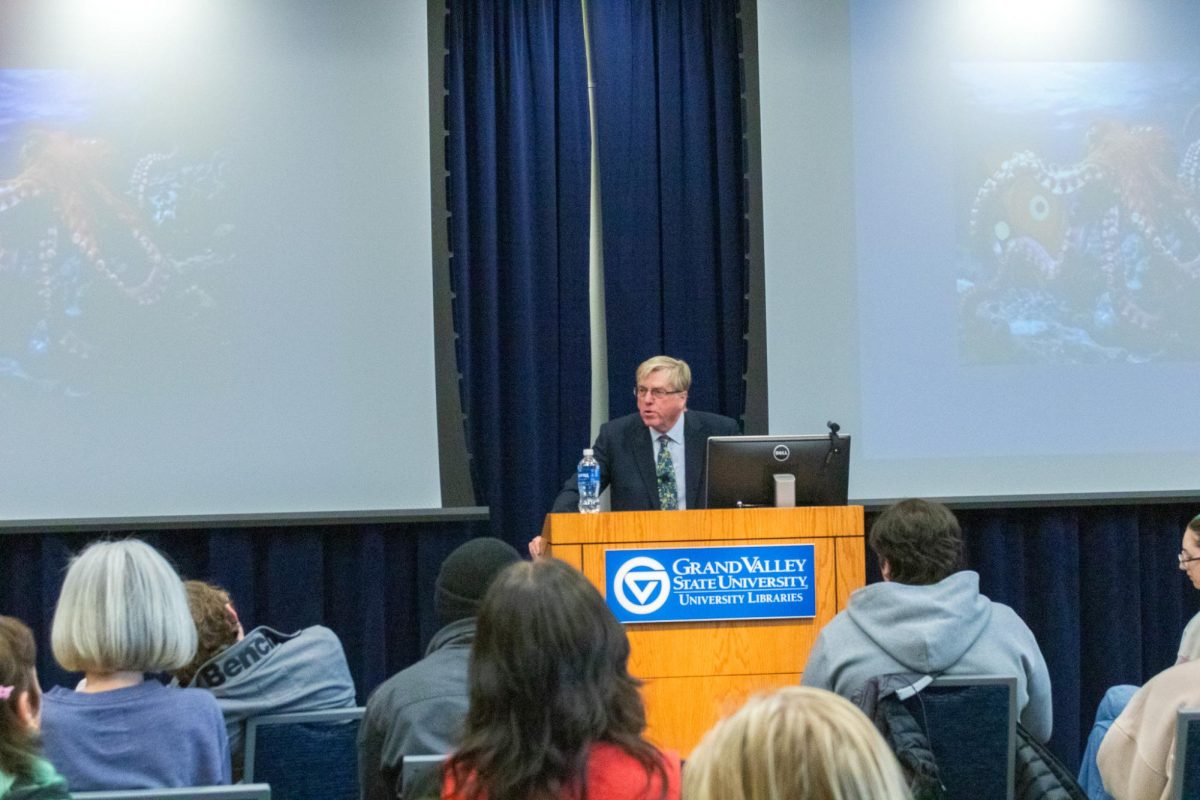Headed home
Apr 13, 2014
After one of the most gruesome winters in recent memory, most Grand Valley State University students look forward to a break from the rigors of college life and to bask (for a while, at least) in the sun.
To other students, though, transitioning from campus life back to home life can be an unexpected challenge.
On April 17 at 8 p.m. at 142 North C Living Center, the University Counseling Center will host its Transition Home for the Summer seminar to help students living on campus adjust back home over the summer months.
Melissa Selby-Theut, outreach coordinator at the University Counseling Center, is heading the effort to help students in this transition period.
“We see a lot of transition issues at the beginning of the academic year,” Selby-Theut said. “But I think contrary to some people’s belief, we still sometimes feel a lot of adjustment issues at the end of the academic year, as well.”
While this kind of adjustment anxiety is more common to students returning to campus than leaving, it does not diminish the need for students to seek out attention if they need it.
“We do find a lot students coming in at the beginning of the year for personal stuff that might be related to the adjustment, versus students sometimes being not as willing to come in at the end of the year because they know they’ll be transitioning home, so we do presentations at the end year and focus on the individual.”
The effort then becomes how to help inform students who might be having these anxieties to get the help they might need. A lot of that stress comes from a change in environment.
“It might be very easy, but for some students it can be very difficult from going to a great deal of independence or operating on their own without curfew or without any certain expectation to check in or to do certain things, and then in a matter of a day or hours then being put back in that position where they are accountable to somebody.”
Another contributor to the feeling of anxiety is the uncertainty of what students will do during the four-month hiatus between the end of the winter semester and the beginning of the fall semester. This can manifest during the summer as boredom and cause additional stress.
“(Others) don’t have anything to do all day, which can create feelings of boredom or exacerbate other things they might be feeling,” Selby-Theut said.
She said the feeling is common among college students, and the Counseling Center is ready to receive them.
“We do try to meet the demand of different groups as it arises,” she said. “So if there is a particular group of students who are noticing some significant adjustment issues or feeling a lot of stress, students can always contact the Counseling Center.”
Students are also encouraged to visit the Counseling Center’s website where they can request on-demand outreaches, presentations or interventions.
This particular presentation is developed by the Counseling Center’s peer educators. These students are trained by the University Counseling Center in working with other students and pass on that knowledge to others. There will also be a doctoral intern assigned to each peer education group to provide supervision.
One of the main topics that the presentation will communicate is how to recognize which stressors trigger anxiety.
“The presentation goes into what kind of stressors you might be experiencing,” Selby-Theut said. “Things like parents, boredom, or having to work full-time and feeling more busy than you were when you were in school. All of those adjustment-related issues and all the ways to help manage them.”
The presentation will also teach students self-care strategies aimed at reducing stress.
“It’s going to be how to manage stress related to some of these adjustments, so that can include some of the basics like exercise and eating right,” she said. “Those things help to manage it.”
As with many seminars of this kind, the problem comes down to students recognizing the problem and trying to find a way to solve it. For Selby-Theut and the Counseling Center, it’s about encouraging students to come forward about their anxieties.
“We just want to materialize that for students who may or may not use center so they may or may not come in for personal counseling, but they still have access to some of the information and resources that might be helpful in managing what might be tough life experiences or difficult times,” she said.
For more information on Transitioning Home for the Summer, visit www.gvsu.edu/events/transitioning-home-for-the-summer or call the University Counseling Center at 616-394-4848.






















